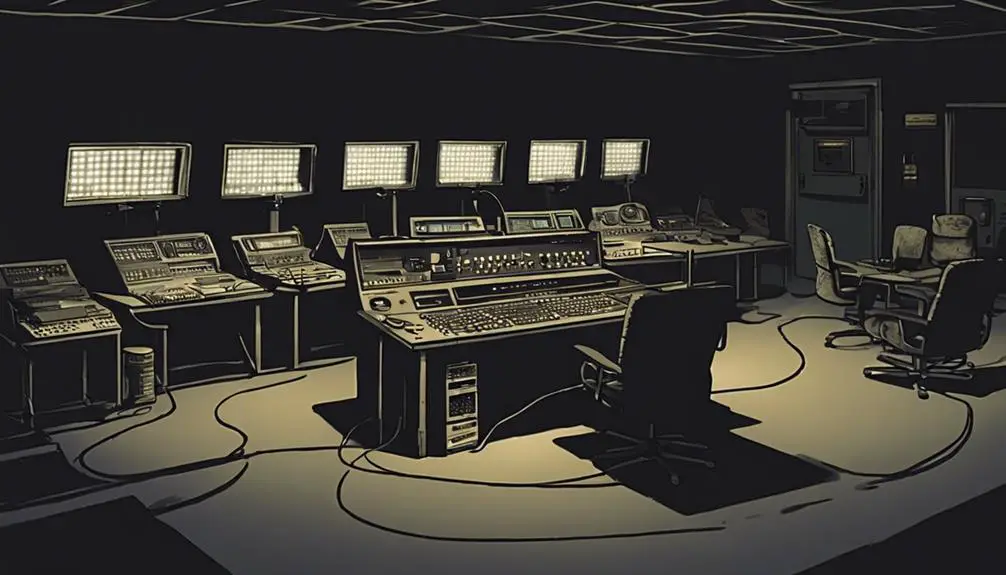You're likely familiar with the term 'EMCON,' a piece of military slang that stands for 'Emission Control,' an essential tactic used to prevent enemies from detecting and locating radio transmissions. EMCON originated in the early 20th century as a response to the threat of radio direction finding. By maintaining silence, radio operators can prevent enemies from intercepting and exploiting transmissions, maintaining a strategic advantage. As you explore the importance of EMCON, you'll uncover the tactical advantages of silence and how it has become a fundamental component of modern warfare.
Origins of EMCON
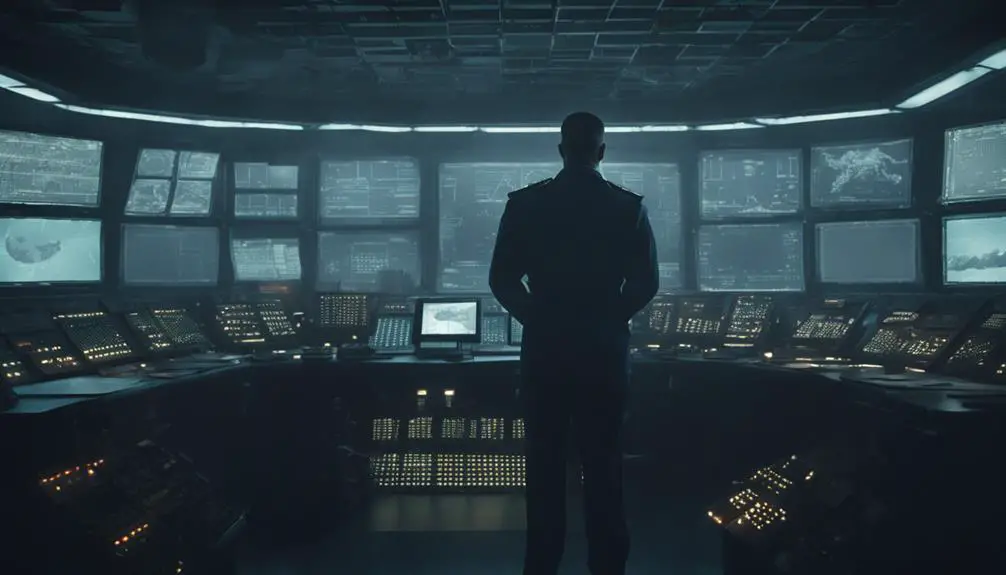
During wartime, you've likely heard radio operators suddenly stop transmitting, a tactic known as EMCON, or Emissions Control, which originated in the early 20th century as a response to the growing threat of radio direction finding. This tactic was developed to prevent enemies from detecting and locating radio transmissions, which could compromise military operations.
The concept of EMCON gained significant importance during the Cold War, when electronic warfare played a pivotal role in military strategy. Both the United States and the Soviet Union invested heavily in electronic warfare capabilities, recognizing the potential to disrupt each other's command and control systems. EMCON was a key component of this strategy, allowing military forces to deny enemies access to critical information while protecting their own communications. By remaining silent, radio operators could prevent enemies from intercepting and exploiting their transmissions, thereby maintaining a strategic advantage.
Tactical Advantages of Silence

By remaining silent, you deny the enemy valuable information, buying time to reassess and adjust your strategy, and potentially creating an opportunity to gain the upper hand. This strategic advantage allows you to maintain the initiative, making it difficult for the enemy to anticipate your next move. In stealthy surveillance, silence is essential, as it enables you to gather intel without being detected. Additionally, decoy transmissions can be used to deceive the enemy, making them believe you're transmitting when you're not. This deception tactic can lead to confusion and misinformation, ultimately disrupting the enemy's plans. Silence also allows you to conserve resources, reducing the risk of detection and minimizing the electronic signature of your operations. By controlling the flow of information, you can manipulate the enemy's perception, creating an asymmetric advantage. In the world of radio silence, information is power, and withholding it can be a powerful tactical tool.
Radio Silence in Modern Warfare
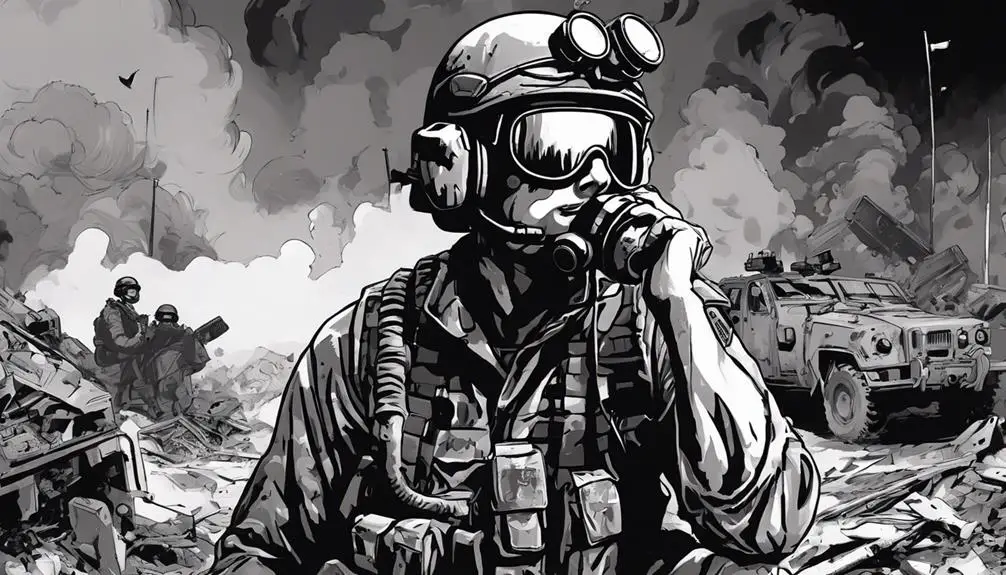
In modern warfare, you're likely to find radio silence playing a critical role in covert operations, where special forces teams rely on it to slip in and out of hostile territories undetected. This strategic advantage allows them to gather intel, conduct reconnaissance, or execute missions without alerting the enemy. In today's digital age, radio silence is essential in preventing electronic warfare (EW) attacks, which can compromise communication networks and disrupt command and control structures. Cyber attacks, in particular, pose a significant threat to military communications, making radio silence an indispensable countermeasure. By maintaining silence, military units can avoid revealing their positions, frequencies, and encryption methods, thereby denying the enemy valuable intelligence. Essentially, radio silence has become a fundamental component of modern warfare, enabling special forces to operate undetected and achieve their objectives with greater success.
Communication Blackout Protocols
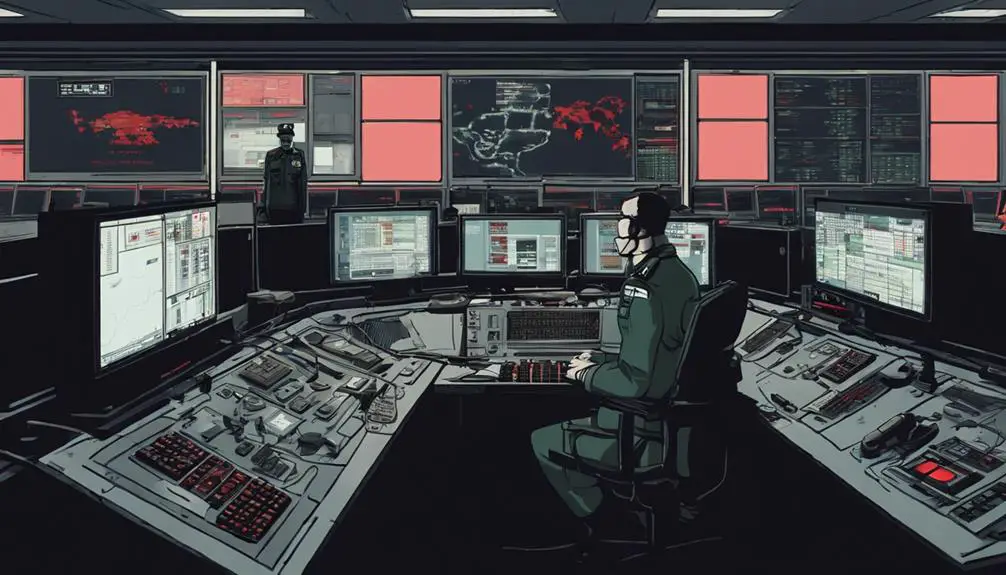
When you're operating in hostile territory, maintaining radio silence is only half the battle – you also need protocols in place to guarantee a complete communication blackout in case of emergency. This is where communication blackout protocols come into play. These protocols are designed to make certain that all communication systems are completely shut down, preventing any sensitive information from being transmitted or received. This is important in preventing enemy forces from intercepting critical information that could compromise your mission.
Communication blackout protocols involve a set of procedures that ensure all communication devices are shut down or placed in a secure mode. This includes radios, satellite phones, and other communication equipment. The protocols also involve securing sensitive information, such as encrypting data and securing physical documents. By following these protocols, you can guarantee that your information remains secure, even in the event of an emergency. Effective communication blackout protocols are essential for maintaining information security and ensuring the success of your mission.
Secrecy in Covert Operations

Operating covertly requires you to maintain secrecy at all costs, as even the slightest leak of information can compromise your mission and put lives at risk. This emphasis on secrecy is vital, as it's the backbone of covert operations. You must understand that operational security (OPSEC) is paramount, and any breach can have devastating consequences.
In covert protocols, secrecy is not just a recommendation, it's a necessity. Every move, every communication, and every decision must be made with the utmost care to avoid detection. You can't afford to let your guard down, not even for a moment. This level of vigilance is exhausting, but it's what separates successful covert operations from failed ones.
Your ability to maintain secrecy will be constantly tested, and it's up to you to ensure that your actions, and those of your team, remain covert. This means adhering to strict protocols, encrypting communications, and limiting access to sensitive information. By doing so, you'll be able to uphold the integrity of your mission and stay one step ahead of the enemy. Remember, in covert operations, secrecy is your best friend – and your worst enemy if compromised.
Breaching the Silence: Consequences
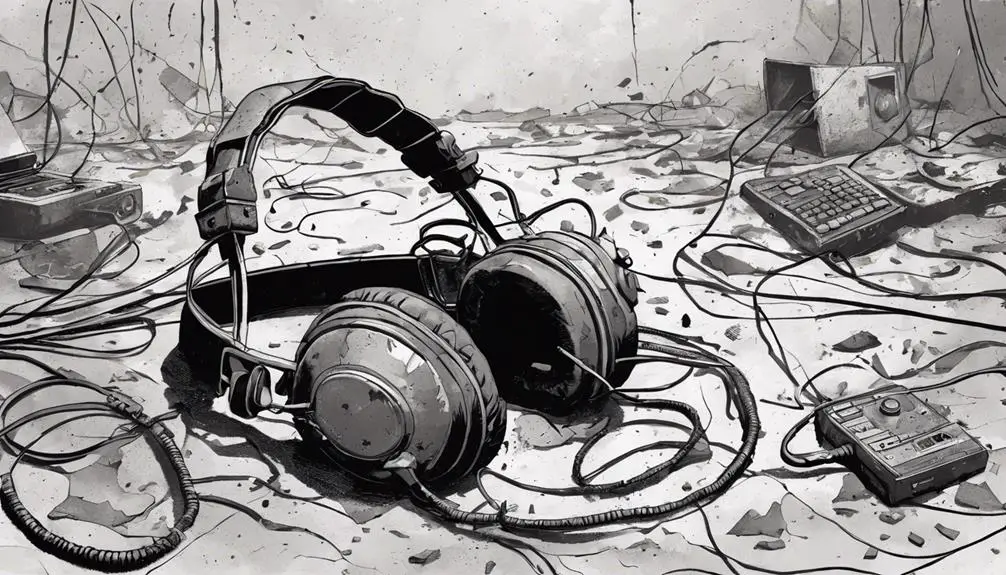
By breaching radio silence, you risk unraveling the intricate web of secrecy that shields your covert operation, exposing your team to devastating consequences that can prove catastrophic. The Silent Treatment, a deliberate lack of communication, can have a ripple effect, compromising the entire mission. When you break radio silence, you open yourself up to detection, making your team vulnerable to enemy interception and ambush.
The consequences of breaching radio silence can be far-reaching. A Communication Breakdown can lead to miscommunication, confusion, and delayed responses, ultimately jeopardizing the success of the operation. Your team's safety and the mission's objectives are put at risk when radio silence is compromised. The enemy can intercept vital information, gaining a strategic advantage that can turn the tide of battle against you.
In a high-stakes operation, maintaining radio silence is paramount. Any breach can have a snowball effect, leading to a cascade of failures that can be disastrous. Understanding the gravity of breaching radio silence and taking every precaution to maintain the secrecy that shields your operation is imperative.
Frequently Asked Questions
Can Radio Silence Be Used for Tactical Deception or Misdirection?
You're wondering if radio silence can be used for tactical deception or misdirection. Well, the answer is yes. By suddenly going dark, you create an information vacuum that can be exploited. Electronic deception tactics can be employed to create signal ambiguity, making it difficult for adversaries to discern reality from fiction. This can lead to a strategic advantage, as the enemy is left guessing your next move.
How Do Allies Communicate During Radio Silence Without Compromising Secrecy?
When you're operating in a radio silence scenario, secure communication with allies is essential. You'll need to rely on covert signals, like encrypted messages or subtle changes in communication patterns, to convey important information without arousing suspicion. Secure messaging apps or specialized devices can facilitate this, ensuring your communications remain hidden from prying eyes. By using these tactics, you can maintain secrecy while still coordinating with your team.
Are There Penalties for Breaking Radio Silence Without Authorization?
You'd be lucky to get away with breaking radio silence without authorization, but don't count on it. The consequences are severe, and the penalties can be a career-ender. In the world of radio protocol, a communication breach is taken extremely seriously. If you're caught transmitting without clearance, you'll face disciplinary action, and it won't be pretty. Your superiors will come down hard on you, and your reputation will take a hit.
Can Radio Silence Be Used to Conceal a Military Unit's Location?
You're wondering if radio silence can be used to conceal a military unit's location. The answer is yes. By maintaining signal discipline and imposing a communication blackout, a unit can avoid transmitting any signals that could be intercepted or traced back to their location. This tactic is often used to maintain operational security and prevent the enemy from detecting their position.
Do Civilians Ever Unintentionally Breach Military Radio Silence?
You're probably familiar with radio protocol breaches in everyday life, like accidentally dialing a wrong number or broadcasting sensitive info on a public frequency. But did you know that civilians can unintentionally breach military radio silence too? It's more common than you think. Unintentional disclosure can occur when civilians unknowingly transmit on military frequencies, compromising operational secrecy.

